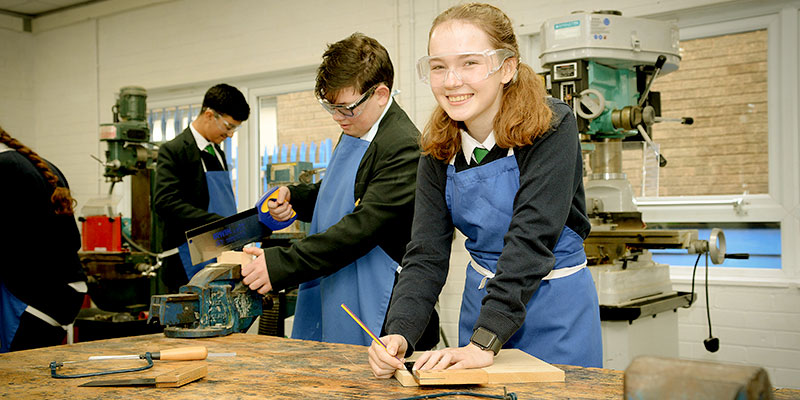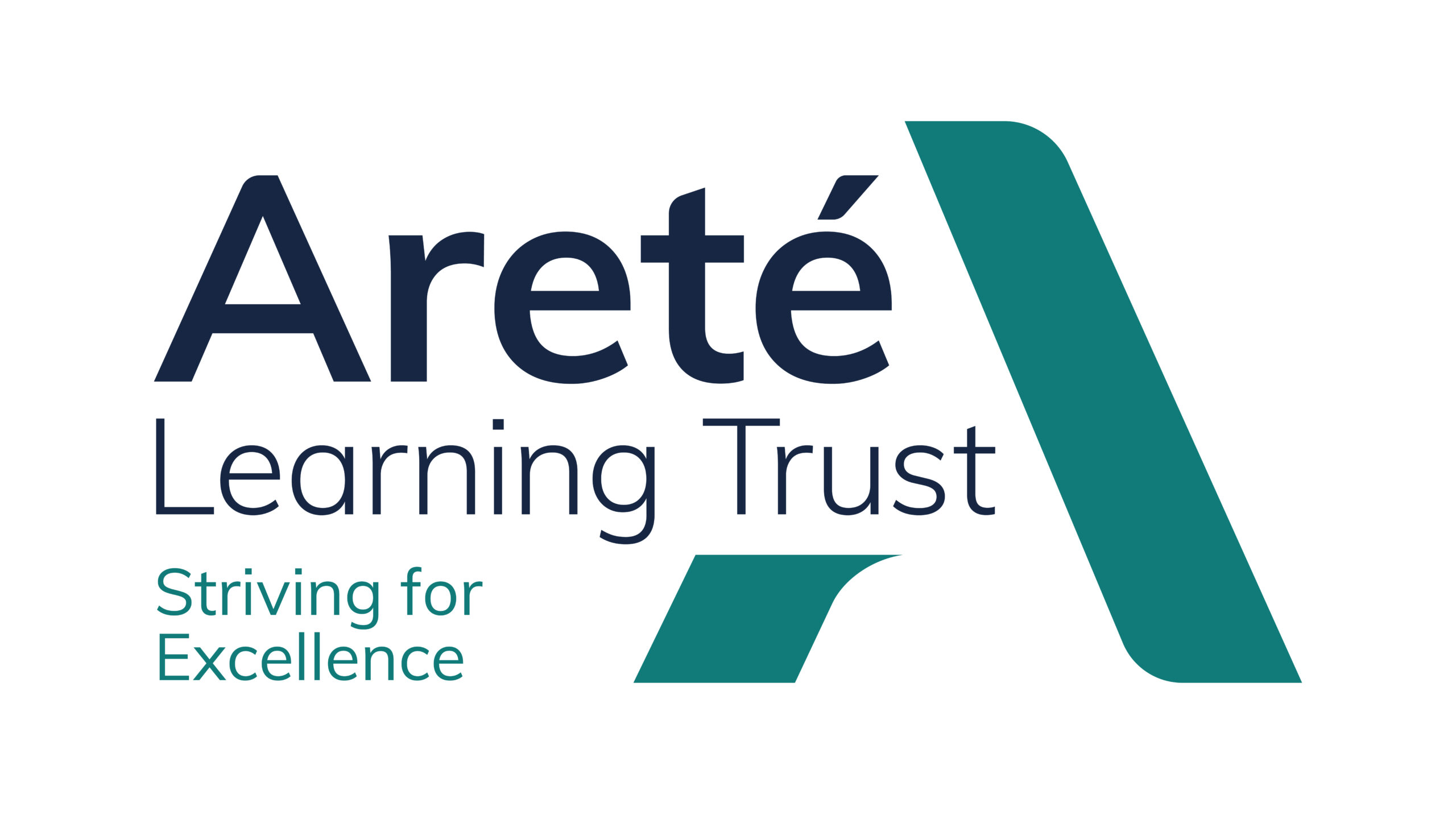
Technology – Hard

As a faculty, we are committed to ensuring that all students make good progress throughout all the projects that they participate in within Design and Technology.
To achieve this we believe in supporting all students to achieve their target grades, regardless of what their target grades are. Student’s work is regularly marked and targets for improvement set. Work is revisited so that students have the opportunity to achieve these targets.
Technology Department
Mr Jonathan Ball
Technician
jeball@nunthorpe.co.uk
01642310561 EXT: 1062
Mr Tim Duffill
Vice Principal – Teaching & Learning and Curriculum
tduffill@nunthorpe.co.uk
01642310561 EXT: 1020
Mr Kevin Webster
Technology Teacher – Supply
kwebster@nunthorpe-alt.uk
01642310561 EXT: 1062
Year 6 Transition
In order to excite and captivate our new students to Technology a range of fun activities have been planned. These are aimed at encouraging students to work creatively and as a team to aid their transition into a new school facilitating making new friends. Their tasks will be as follows:
- Design Technology – Students produce an Olympic key ring.
Key stage 3
In the academic year of 2024-2025 all students will experience a wide range of different projects within the different Technology subjects; these include Design Technology and Engineering. All students will be taught the basic skills needed to complete projects to high standards, covering areas such as research, design, modelling, development, planning, making and evaluation. Within a 1 hour session students can expect to follow a variety of different tasks which will help them to develop their understanding of a range of skills, techniques and equipment. This will help students gain a level of independence so that they are able to plan and progress their own work.
Technology is a very practical based subject which enables the students to learn in a variety of different ways. The projects that students are involved in have been tailored to suit all ability levels and cater for a wide range of interests.
All groups are mixed ability.
Timetabling
Students will spend the following amount of time in Design and Technology over a two week cycle:
- Year 7 = 1 hours;
- Year 8 = 1 hours;
- Year 9 = 1 hours.
- Year 10 = 5 hours a fortnight.
- Year 11= 5 hours a fortnight.
Students cover a range of projects in Design Technology over the year.
Assessment arrangements for Key Stage 3 Design and Technology
All students in Key Stage 3 will be assessed approximately each half term to monitor progress. Each assessment will focus on particular projects, for research, design, planning or evaluation work and practical work. The grades reported will be a combination of marks across the whole faculty.
Timetable of Projects
Year 7
Projects will be timetabled in a variety of different combinations:
| D&T PROJECT 1 | D&T PROJECT 2 | D&T PROJECT 3 | D&T PROJECT 4 |
|---|---|---|---|
| Card-ashians | Block bot | Elmer the elephant | Whiteboard |
| Graphics skills Design, rendering, making | Wood work, Marking out, cutting, drilling, adhesives. | CAD/CAM 2d design, laser cutting | Woodwork skills, marking out, shaping, abrading, use of vinyl |
Year 8
Projects will be timetabled in a variety of different combinations:
| D&T PROJECT 1 | D&T PROJECT 2 | D&T PROJECT 3 | D&T PROJECT 4 |
|---|---|---|---|
| Metal bugs | Wooden animals | Catapults | 2D Design clock |
| Design, making, machine skills, welding | Marking out, complex cutting, assembly | Design and making building on Prototyping, testing and redesign. | CAD/CAM using 2D design |
Year 9
Projects will be timetabled in a variety of different combinations:
| D&T PROJECT 1 | D&T PROJECT 2 | D&T PROJECT 3 | D&T PROJECT 4 |
|---|---|---|---|
| Passive massive speaker | Metal animal lamp | Bug hotel | Sketch up/metal casting |
| Woodworking, shaping, cutting, refining finishing techniques | Metalwork, shaping, shearing, drilling, electronics | Wood joints, accuracy and precision | CAD design followed by metal casting |
Projects Costing
A considerable amount of time is spent sourcing the materials for practical work. We believe that a valuable part of the subject is that of materials use, waste, and costing. As a result students will be asked to pay a representative sum for projects and food practical’s across Technology in one lump sum at the beginning of the year. These are as follows:
- Key Stage 3 – Year 7, 8, and 9 – £10 per year;
- Key Stage 4 – One off payment of £25.00 (this does not cover revision guides).
The Learning Journey
Design Technology
Each of the KS3 projects from Year 7 through to Year 9 is designed to build on the skills of the previous projects whilst keeping the broad range of skills required for GCSE/BTEC qualifications in KS4/KS5. We also encourage students to try new tools, equipment and processes from the beginning of their journey. This teaches them respect and more importantly safety in a workshop environment.
Key stage 4
At Key stage 4 students can opt for two of three courses offered within the Technology faculty. The courses including the examination boards and web site addresses offered to students are shown below:
- GCSE Design Technology – AQA: Design Technology | AQA;
- WJEC Tech Award in Engineering – Edexcel;
- WJEC Construction.
Time Allocation
For all subjects students are allocated 5 hours per fortnight in Year 10 and Year 11.
Assessment Arrangements
GCSE Design Technology
Assessment for the subject listed above consists of 50% NEA (non – examined assessment). This involves the production of one project over 40 hours for both subjects. This begins in the July of Year 10 and continues until March of the following year in Year 11. The assessment criterion follows the process of analysis of a task, development of ideas, making, testing and evaluation.
A 2 hour exam worth 50% will be taken at the end of the course. Part of the Design Technology exam (15%) will be based on a context students will be notified about before the exam and part on the work which will have been covered throughout the year (25%).
WJEC Tech Award in Engineering
This course is made up of 2 coursework tasks worth a total of 60% of the final mark Unit 1 is a planning and making task worth 40%, Unit 2 is a redesign and modelling project. Students will carry out an exam in year 11 which is worth 40% of the course. Students begin working on the Award in September year 11 and upon completion gain the equivalent of a GCSE grade. Students are awarded grades from level 1 pass to level 2 distinction * and these grades are the equivalent of GCSE.
WJEC Construction
This course is made up of 2 coursework tasks worth a total of 60% of the final mark Unit 1 is an introduction to the built environment worth 40%, Unit 2 is a design and making project. Students will carry out an exam in year 11 which is worth 40% of the course. Students begin working on the Award in September year 11 and upon completion gain the equivalent of a GCSE grade. Students are awarded grades from level 1 pass to level 2 distinction * and these grades are the equivalent of GCSE.
Breakdown of Topics
Design Technology
| What’s assessedCore technical principlesSpecialist technical principlesDesigning and making principlesIn addition:at least 15% of the exam will assess mathsat least 10% of the exam will assess science. |
| How it’s assessedWritten exam: 2 hours100 marks50% of GCSE |
| QuestionsSection A – Core technical principles (20 marks)A mixture of multiple choice and short answer questions assessing a breadth of technical knowledge and understanding.Section B – Specialist technical principles (30 marks)Several short answer questions (2–5 marks) and one extended response to assess a more in depth knowledge of technical principles.Section C – Designing and making principles (50 marks)A mixture of short answer and extended response questions. |
| Non-exam assessment (NEA) |
| What’s assessedPractical application of:Core technical principlesSpecialist technical principlesDesigning and making principles |
| How it’s assessedNon-exam assessment (NEA): 30–35 hours approx100 marks50% of GCSE |
| Task(s)Substantial design and make taskAssessment criteria:Identifying and investigating design possibilitiesProducing a design brief and specificationGenerating design ideasDeveloping design ideasRealising design ideasAnalysing & evaluatingIn the spirit of the iterative design process, the above should be awarded holistically where they take place and not in a linear mannerContextual challenges to be released annually by AQA on 1 June in the year prior to the submission of the NEAStudents will produce a prototype and a portfolio of evidenceWork will be marked by teachers and moderated by AQA |
WJEC Engineering
Unit 1 provides learners with the opportunity to interpret different types of engineering information in order to plan how to produce engineering products. Learners will develop knowledge, understanding and skills in using a range of engineering tools and equipment in order to produce and test an end product (page 9).
Unit 2 allows learners to explore how an engineered product is adapted and improved over time, and it offers learners the opportunity to apply their knowledge and understanding to adapt an existing component, element or part of the engineering outcome that they produced for Unit 1 (page 19).
Unit 3 introduces learners to a range of considerations that impact on engineering design and how modern engineering has had an impact on modern day life at home, work and in society in general
Assessment overview Summary of Assessment Unit 1: Manufacturing Engineering Products Controlled assessment: 20 hours 40% of qualification 80 marks An assignment brief will be provided by WJEC that will include a scenario and several tasks available via the WJEC Secure Website. Unit 2: Designing Engineering Products Controlled assessment: 10 hours 20% of qualification 40 marks An assignment brief will be provided by WJEC that will include a scenario and several tasks available via the WJEC Secure Website. Unit 3: Solving Engineering Problems Written examination: time of exam – 1 hour 30 minutes 40% of qualification 80 marks Questions requiring objective responses, short and extended answers, based around applied situations. Learners will be required to use stimulus material to respond to questions.
WJEC Construction
Unit 1 introduces learners to the built environment and provides them with the opportunity to develop skills, knowledge and understanding in identifying, explaining and evaluating different ideas and concepts of the built environment. Learners will explore a range of profession and trade roles, and some of the different structures and buildings of the built environment.
Unit 2 offers learners the opportunity to develop skills, knowledge and understanding of the design of the built environment, including exploring what is needed to interpret and produce drafts, drawings, and models of design plans. Unit 2: Designing the Built Environment Controlled assessment: 30 hours 60% of qualification 120 marks An assignment brief will be provided by WJEC that will include a scenario and several tasks available via the WJEC Secure Website. Unit 3: Constructing the Built Environment Controlled assessment: 30 hours 60% of qualification 120 marks.
Unit 3 offers learners the opportunity to develop skills, knowledge and understanding of three construction trade areas of the built environment, including planning, undertaking and evaluating construction tasks (page 37). Summary of Assessment Unit 1: Introduction to the Built Environment On-screen examination: 1 hour 30 minutes 40% of qualification 80 marks Questions requiring objective responses, short and extended answers, based around applied situations. Learners may be required to use stimulus material to respond to questions.
Key stage 5
AQA A-Level Design and Technology Product Design (3-D Design)
Course Information
The exam board provides details of the course and assessment details: Nelson Thornes
The Nelson Thorne VLE is used to support the delivery of this course and access is provided once a student joins the course.
Moodle has also got a lot of very useful information, revision and videos to help you through the course.
A/S Year 1
Students study the course for 5 hours per week. They undertake a variety of skills, knowledge and practical based units of work:
- Developing an understanding of the physical and mechanical properties in a broad range of materials and components;
- The broader issue for the designer including the environmental sustainability of products and their manufacture;
- Methods in which materials and components can be manipulated to manufacture products;
- Health and safety issues relevant to working with materials;
- Computer Aided Design (CAD) and Computer Aid Manufacture (CAM);
- Ergonomics and anthropometrics, inclusive design, and consumer safety;
- The life cycle of product including manufacturing, use and functional aspects and final disposal.
Assessment Details:
- NEA (Non-Examined assessment);
- Assesses practical application of technical principles and designing and making principles. Substantial design and make project.
- Written or digital portfolio not exceeding;
- 45 pages. Candidate developed brief;
- 50% of the A-level qualification;
- Combined written paper weighting – 50% of the A-level;
- Paper 1 – 30% of A-level: Technical principles: 2.5 hours 120 marks;
- Paper 2 – 20% of A-level: Design and making principles: 1.5 hours 80% marks.
The Learning Journey
Design Technology
This is currently being updated, please check back soon.











